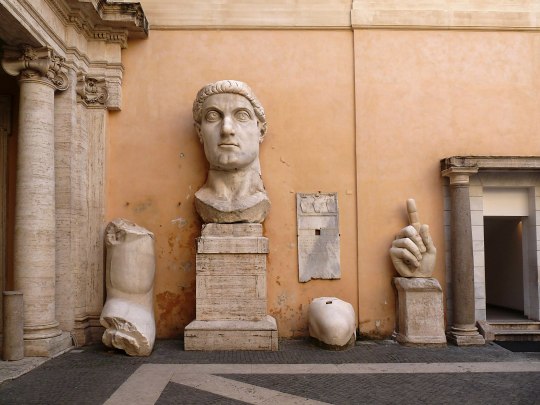#capitolini
Explore tagged Tumblr posts
Photo

PRIMA PAGINA Il Tempo di Oggi venerdì, 02 agosto 2024
#PrimaPagina#iltempo quotidiano#giornale#primepagine#frontpage#nazionali#internazionali#news#inedicola#oggi faro#della#procura#spunta#force#rogo#monte#mario#capitolini#hanno#intanto#lanciano#evitare#altri#disastri#mariani#incendio#viaggio#nella#riserva#trasformata
0 notes
Text
Direzione Musei Capitolini Piazza del Campidoglio, 00186 Roma RM, Italia
📍 https://maps.app.goo.gl/vhmQiwYFmmiUcrRt7
🔁 Visit & Discover Anything, Anywhere, Anytime in VR [360°]
© Milbyz.com
0 notes
Text

𝐏𝐞𝐧𝐢𝐭𝐞𝐧𝐭 𝐌𝐚𝐠𝐝𝐚𝐥𝐞𝐧𝐞
𝐃𝐨𝐦𝐞𝐧𝐢𝐜𝐨 𝐓𝐢𝐧𝐭𝐨𝐫𝐞𝐭𝐭𝐨
𝟏𝟓𝟗𝟖-𝟏𝟔𝟎𝟐
𝐎𝐢𝐥 𝐨𝐧 𝐜𝐚𝐧𝐯𝐚𝐬
#mary magdalene#penitent#Renaissance art#renaissance#tintoretto#penitent magdalene#Venetian school#italian painter#oil on canvas#oil painting#art history#religious art#holy art#1600s#1500s#italian art#history of art#Christian art#Domenico Tintoretto#art blog#art blogging#aesthetic#religious aesthetic#skull#cross#musei capitolini#capitoline museum#holy aesthetic#saint
1K notes
·
View notes
Text
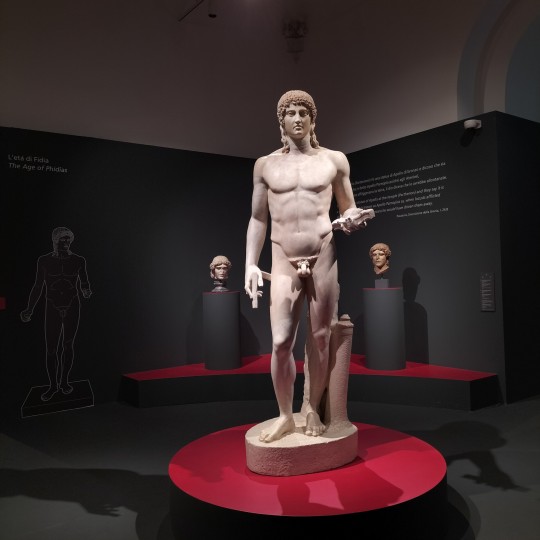
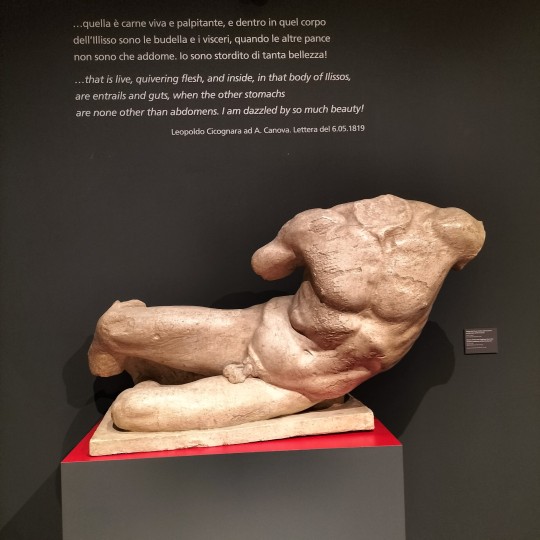


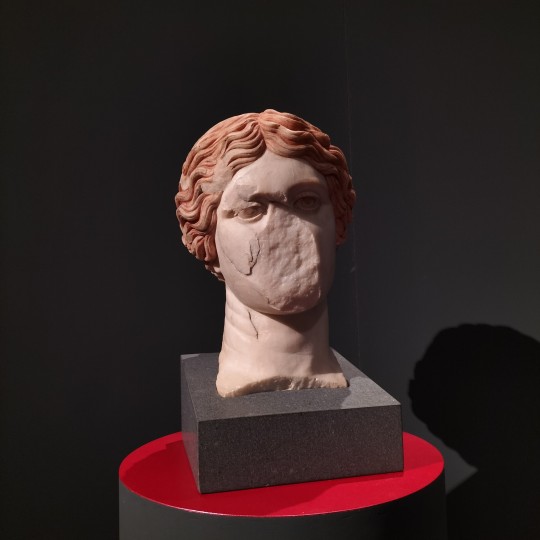
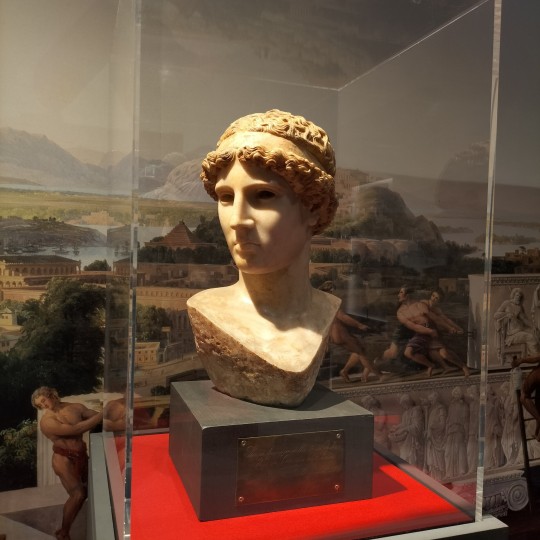
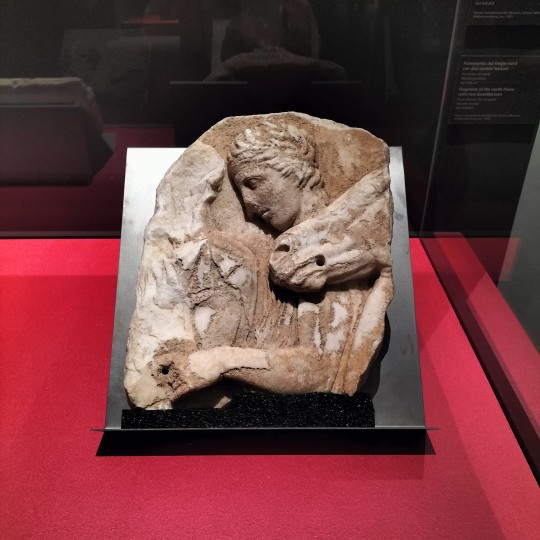
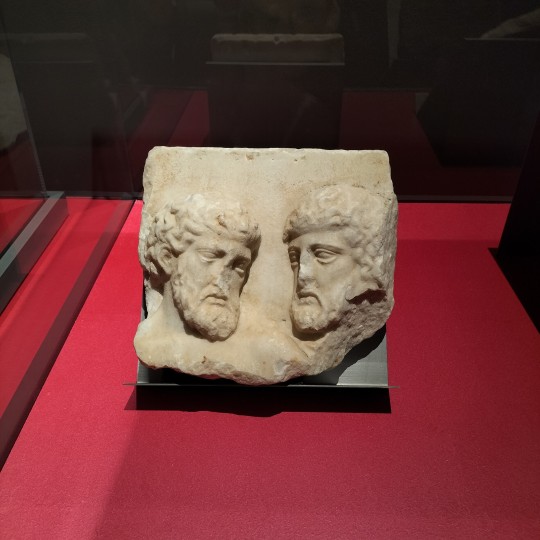
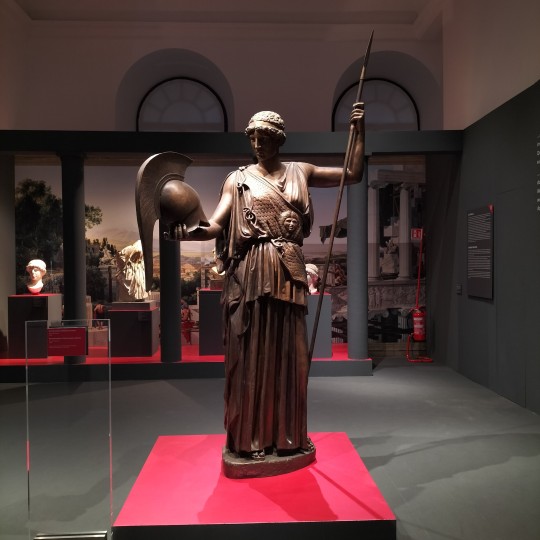

from november 2023 to may 2024 at villa caffarelli, part of the capitoline museums, an exhibit entirely dedicated to phidias, the famous sculptor behind the parthenon and the chrysoelephantine colossi of the athena parthenos and zeus of olympia.
the exhibit is composed of a selection of more than 100 works, from archaeological finds to paintings and manuscripts narrating the life and work of the artisan, with the support of reconstructions, multimedia installations and digital content.
the exhibition is the first of a series of five exhibitions, "i grandi maestri della grecia antica". in addition with the artworks coming from museums in rome and other italian institutions, the exhibit contains some extraordinary loans, items that have never left their museum premises, as for example two fragments from the parthenon frieze, from the acropolis museum in athens.
tiktok
#paiawon.txt#tagamemnon#phidias#archaeoblr#archaeology#art history#rome#capitoline museums#musei capitolini#athens#athena parthenos#zeus of olympia#parthenon#greek archaeology#archaeology tag
786 notes
·
View notes
Text

new cicero angle just dropped
#marcus tullius cicero#CICERO !!!!#musei capitolini#absolute insanity#silly#julius caesar#ancient rome#roman republic#marce tulli#domi sum !!!!
354 notes
·
View notes
Text



Chapel inside of the Capitoline Museums.
Rome
Feb. 2024
#rome#roma#chapel#church#italia#italy#travel#original photography#photographers on tumblr#photography#lensblr#architecture#historical architecture#church architecture#church photography#museum#musei capitolini#Capitoline Museums#museum photography
28 notes
·
View notes
Text

1640-1642, Guido Reni, Anima beata
53 notes
·
View notes
Text
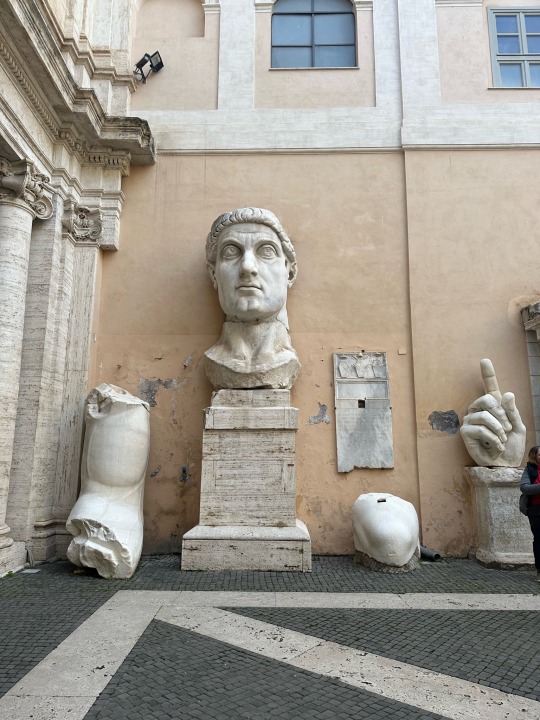
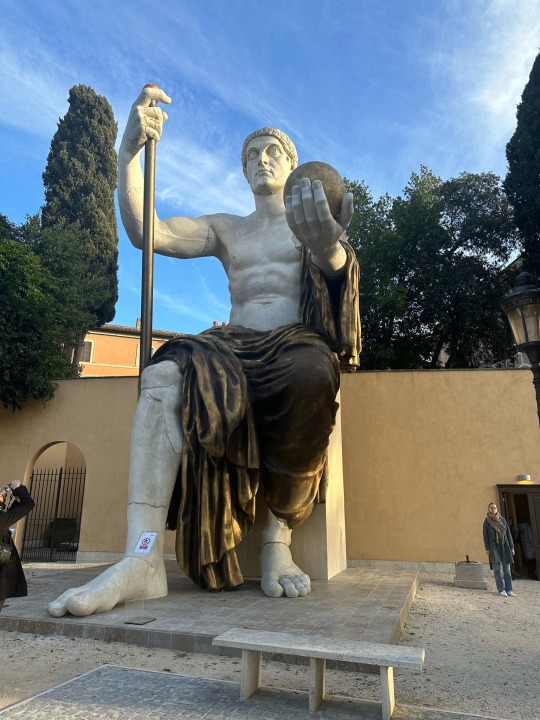
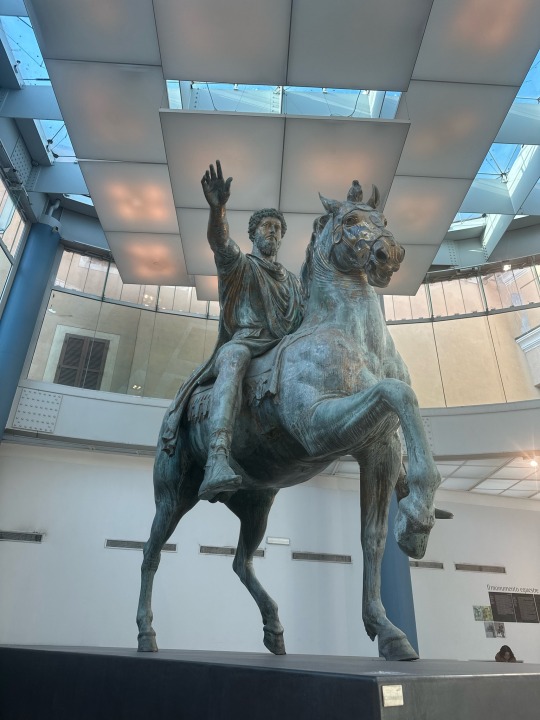
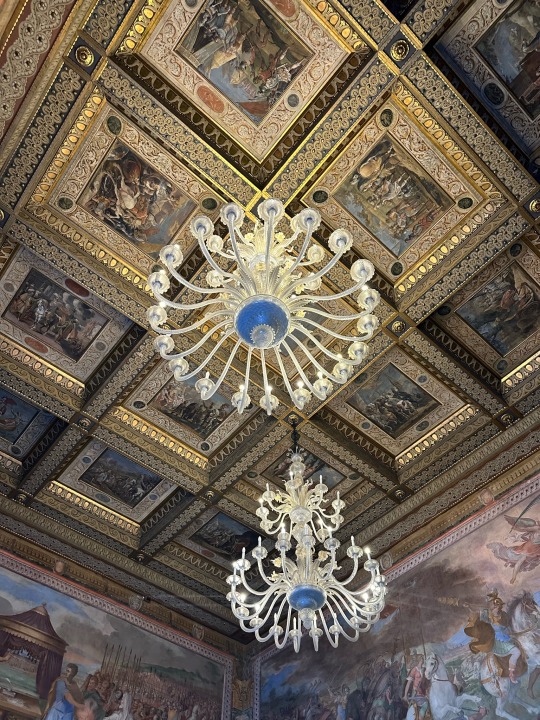
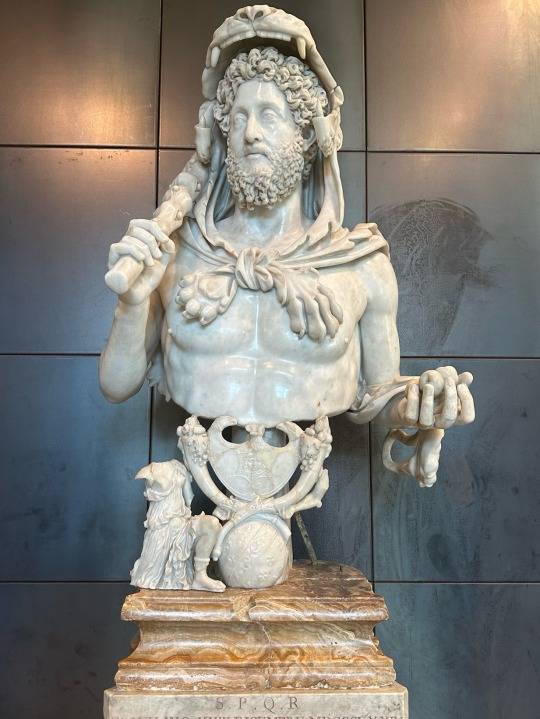
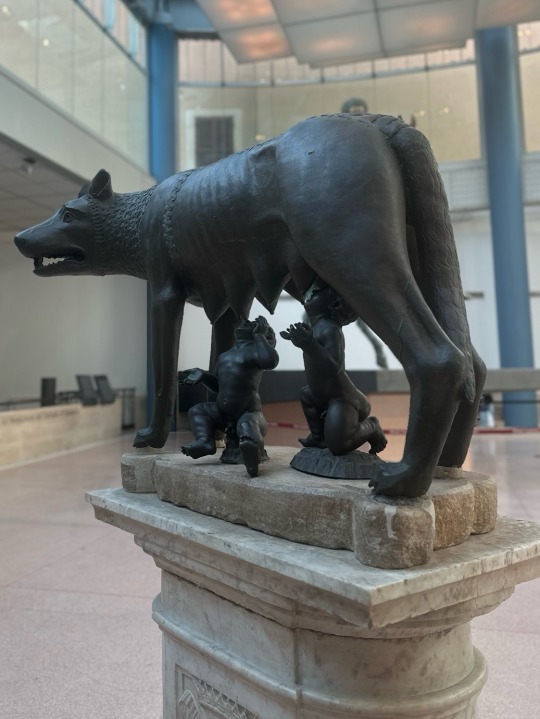
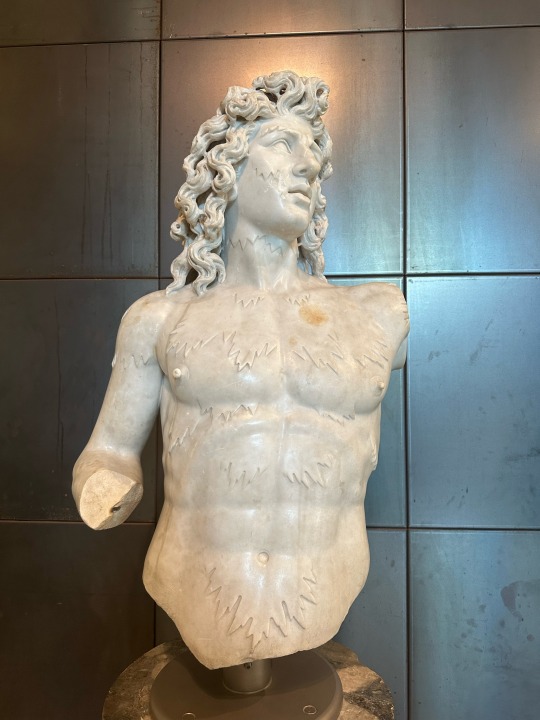
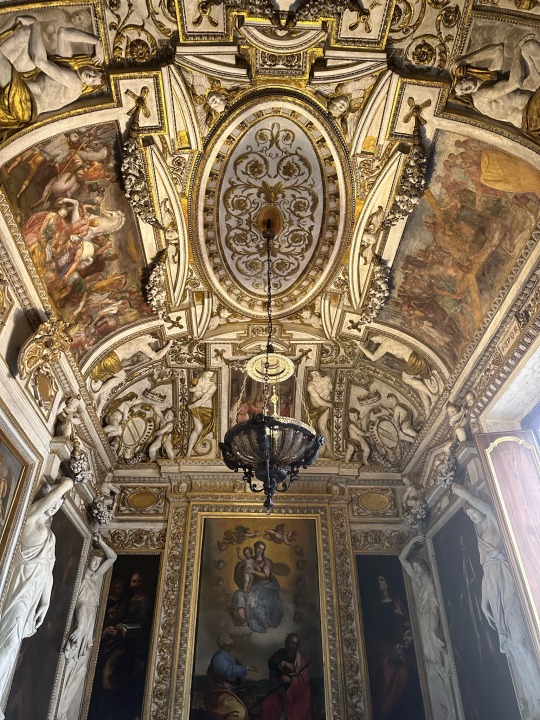
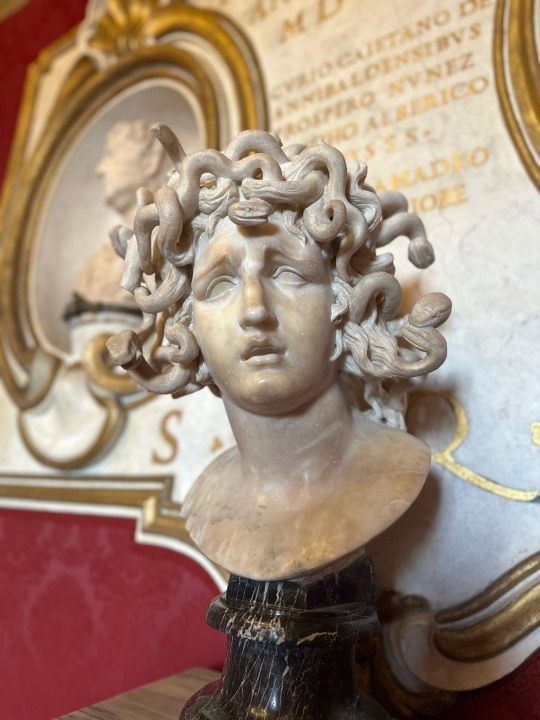
📍Musei Capitolini, Roma
#musei capitolini#roma#scultura classica#scultura greca#scultura romana#imperatori romani#roman empire#rome#italian art#italian museum#colosso di costantino#lupa capitolina#ercoles#marco antonio a cavallo#roman imperator#ancient rome#latin#medusa di bernini#medusa#bernini#musei romani#urbs aeterna
45 notes
·
View notes
Text

AMAZZONE FERITA | Wounded Amazon: I've always wondered what some copies [of the copy, though not all] of this particular sculpture model, following Greek Sculptor Kresilas [and Roman Sculptor Sosicles after him], might be pointing at.. It seems that in this case, the index finger is clearly directed toward something [yet bearing in mind that the left hand is a later restoration]. Any hypotheses?
Roman copy signed by Sosicles [2 AD] after the original type attributed to Kresilas [5 BC] Sosicles : https://en.wikipedia.org/wiki/Sosicles_(sculptor) Kresilas : https://en.wikipedia.org/wiki/Kresilas From Villa d'Este, Tivoli, Lazio 2 AD.
Musei Capitolini, Rome | MC [Palazzo Nuovo, 1st fl., Gallery 6 "Salone"]
Web : https://www.museicapitolini.org/en
FB : https://www.facebook.com/MuseiCapitolini
IG : @ museiincomuneroma | @ museicapitolini
X : @ museiincomune
YT : https://www.youtube.com/user/Museicapitoliniroma
MC | Michael Svetbird @michael-svetbird phs©msp | 28|09|24 6400X2500 + 6400X4200 600 The photographed object is collection item of MC [Non-commercial fair use | No AI | Author rights apply | Sorry for the watermarks]
📸 Part of the "Reliefs-Friezes-Slabs-Sculpture" MSP Online Photo-gallery:
👉 D-ART: https://www.deviantart.com/svetbird1234/gallery/72510770/reliefs-friezes-slabs-sculpture
.
#rome#musei capitolini#capitoline museums#palazzo nuovo#gallery#archaeological museum#art museum#sculpture#kresilas#sosicles#ancient sculpture#ancient#archaeology#antiquity#art history#museology#heritage#culture#greek mythology#amazon#αμαζόνα#wounded amazon#amazzone#oiorpata#antiquities#sculpture photography#museum photography#archaeology photography#art photography#michaelsvetbird
7 notes
·
View notes
Text

Bust of Commodus as Hercules. Capitoline Museums, Rome.
#musei capitolini#capitoline museums#rome#roma#italy#italia#art#sculpture#marble statue#commodus#hercules#marble sculpture
91 notes
·
View notes
Text

r o m e
August 26, 2033
#higginsandcole#classical#bust#Greek#sculpture#Roman#Rome#Roma#capitoline museums#musei capitolini#handsome#interior#architecture#preppy
34 notes
·
View notes
Text
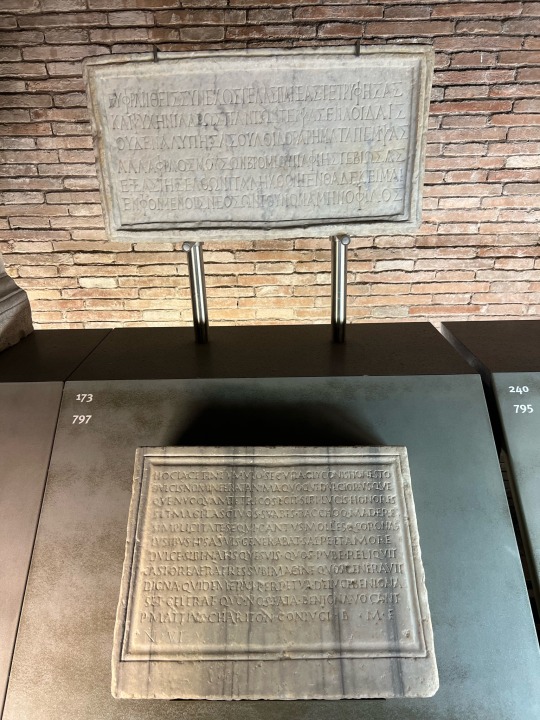
In questa onesta tomba, giace serena Glyconis: era dolce nel nome, ma ancor più dolce nell'anima. Non si curò mai degli onori della vita per lei (troppo) austeri, ma (fu) piuttosto (incline a quanto ci fosse di) sfrenato e piacevole, (preferi) essere inebriata dal vino (Bacchus) ed eseguire canti con semplicità. Spesso come divertimento lei stessa intrecciava con dolce amore morbide corone (di fiori) per sé e per i suoi figli che lasciò nella pubertà, (figli) che generò fratelli ad immagine dei Castori. Degna sì di godere una beata vita eterna, si affretta però dove i fati benigni chiamano. Publius Mattius Chariton fece (fare il sepolcro) per la benemerita moglie.
In this respectable tomb Glyconis lies serenely: sweet in name, but even sweeter in her soul. She never cared for splendid honors for her (too) austere, but rather she preferred to be wild and pleasant, to be inebriated by wine (Bacchus) and to perform songs with simplicity. She often amused herself by weaving beautiful wreaths of flowers with sweet love for herself and for her children, who she left in puberty; (the sons) she created were brothers in the likeness of Castor and Pollux. Worthy to enjoy a blessed and eternal life (lux), she hurried to where the good fates call. Publius Mattius Chariton saw to (the making of this tomb) for his well-deserving wife.
#roma#musei capitolini#tomba#tomb#ancient rome#history#archaeology#glyconis what a life#italia#anch'io preferisco essere inebriata dal vino e cantare che curarmi degli onori della vita
61 notes
·
View notes
Text










Il Musei Capitolini: Part I
#rome#musei capitolini#statues#I could do an entire series on ornate ceilings#I was in Italy from the afternoon of September 1st until early morning September 10th
2 notes
·
View notes
Text
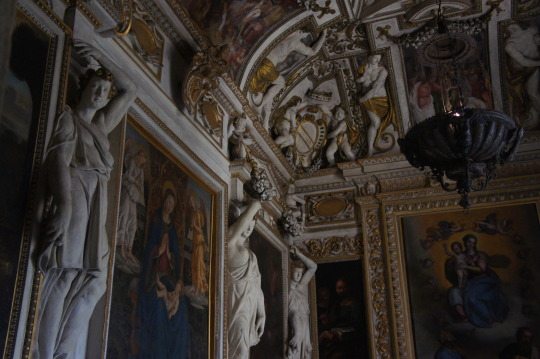
Holding the world
#chaotic academia#dark acadamia aesthetic#dark romanticism#academia aesthetic#dark academia vibes#romantic academia#rome#musei capitolini#amateur photography#photography#moodyphotography#moody#art
15 notes
·
View notes
Text
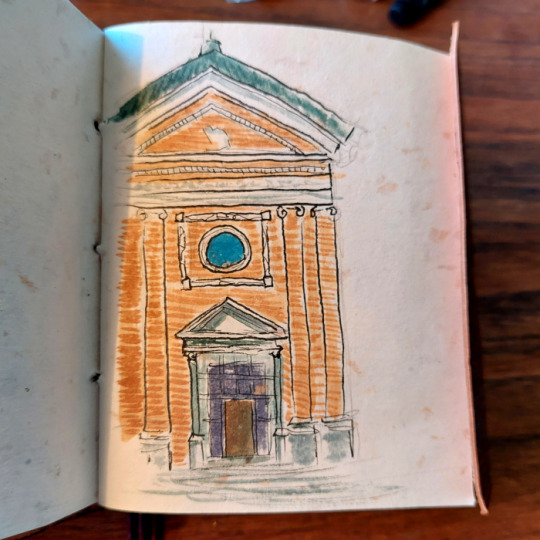

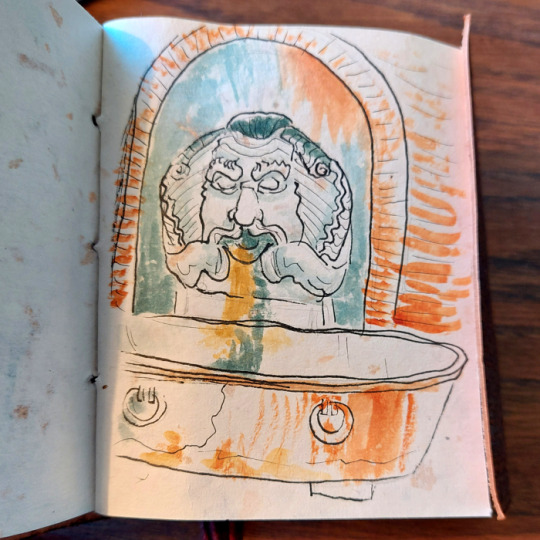
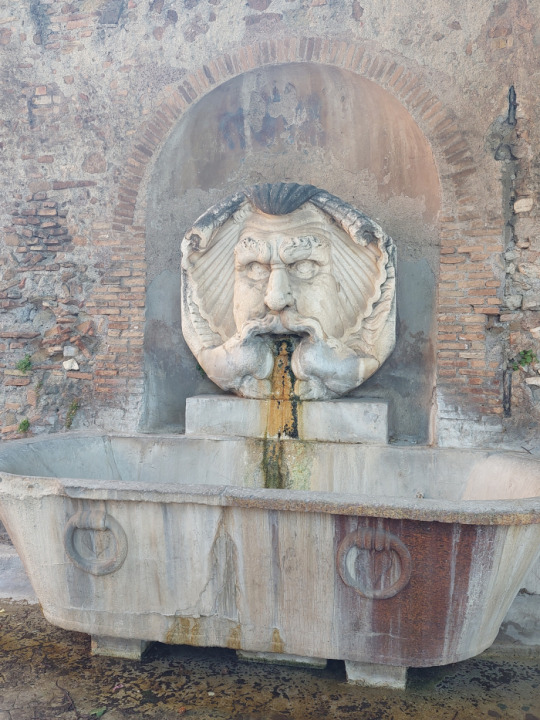
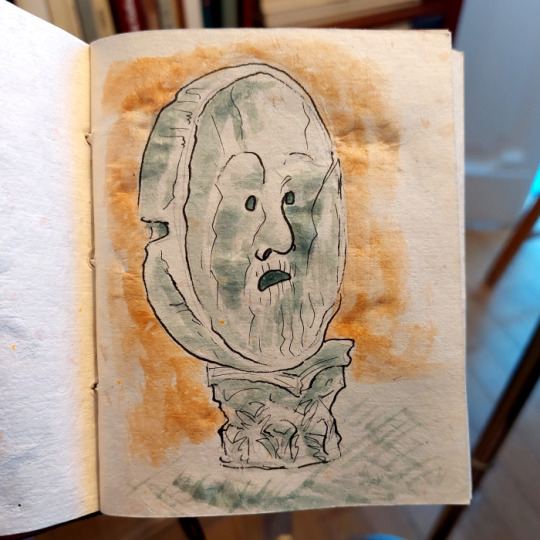
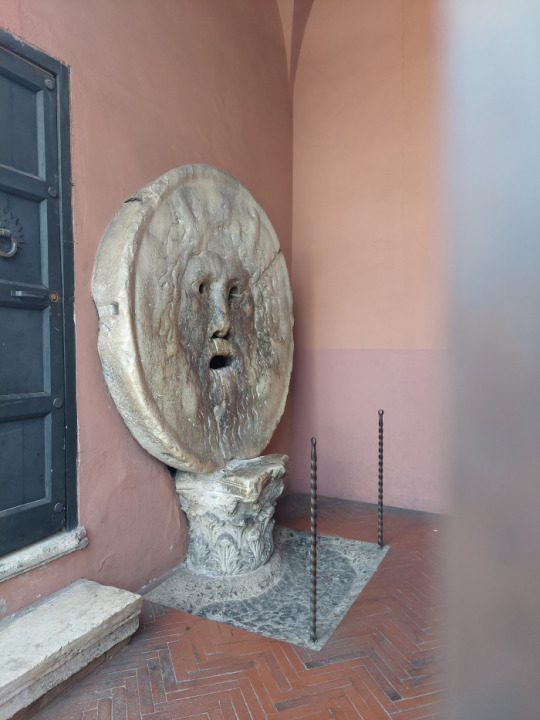
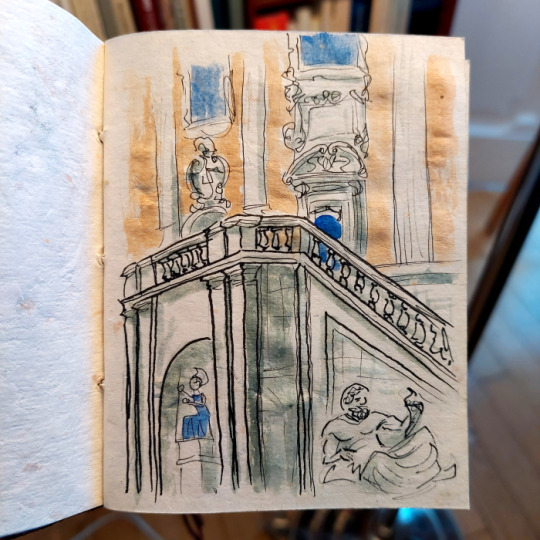

Italian Adventure travelogue paintings!
16: Santa Prisca, Rome.
17: A fountain I don't know the name of. I also don't remember which church this one was at. I saw a lot of churches on this trip, y'all.
18: The Mouth of Truth. I did not stick my hand in its mouth to see if I would be dismembered for dishonesty; the line was very long. You'll just have to take my word for it.
19: Musei Capitolini
#santa prisca#fountain#mouth of truth#musei capitolini#rome#art#watercolor#painting#jojo seames#jojo's italian adventure 2024
3 notes
·
View notes
